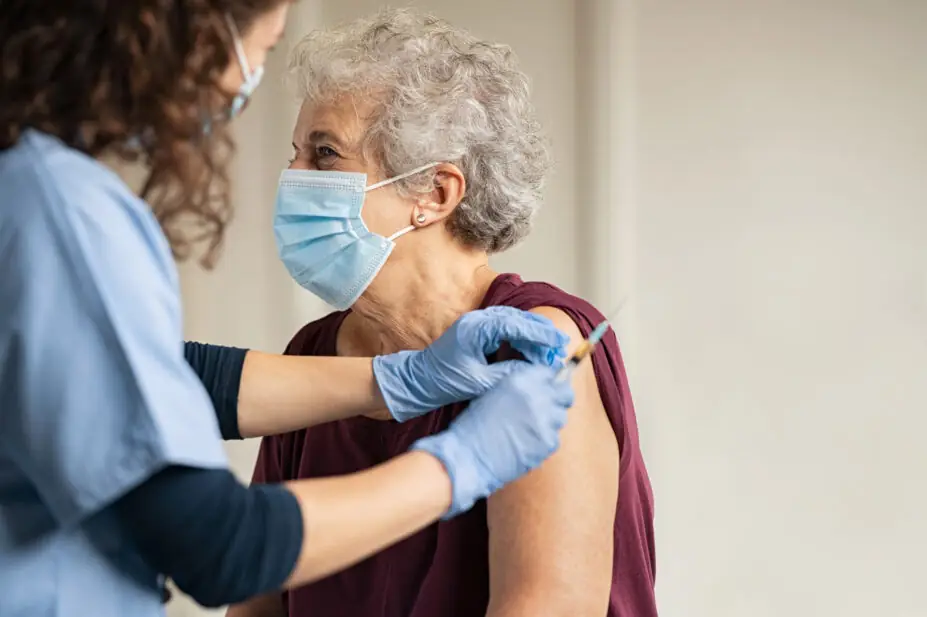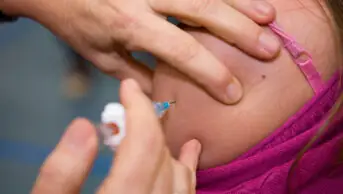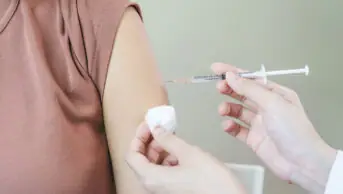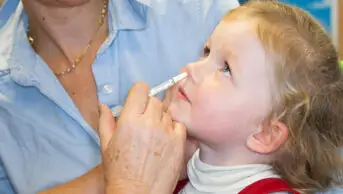
Shutterstock.com
The respiratory syncytial virus (RSV) vaccine is around 82% effective in older people, a study by the UK Health Security Agency (UKHSA) in partnership with NHS trusts has shown.
The study results, published as a pre-print in June 2025, revealed that the vaccine is around 82% effective in preventing hospital admissions in patients aged 75–79 years with RSV infection.
The vaccine is “highly effective” in preventing hospitalisation in patients with chronic respiratory conditions or immunosuppression, the UKHSA said.
According to the study results, the vaccine was 88% effective in those with lower respiratory tract infection, such as pneumonia, and 73% effective in those with immunosuppression.
Results of another study on RSV vaccination in pregnancy, published in The Lancet Child and Adolescent Health on 18 July 2025, found the vaccine to be 72% effective in preventing hospitalisation in infants whose mothers were vaccinated more than 14 days before delivery.
The NHS introduced RSV vaccination programmes in September 2024, including one for older adults aged 75–79 years and another for pregnant women from 28 weeks’ gestation.
The initial rollout included 50 community pharmacies, with a further 200 commissioned for 2025/2026.
In July 2025, the Joint Committee on Vaccination and Immunisation advised expanding the programme for older adults to include those aged 80 years and over, as well as all care home residents.
Alongside vaccination, the NHS will introduce a new antibody-based immunisation, nirsevimab, from September 2025 to protect around 7,000 premature or high-risk babies and infants during their first RSV season.
On 19 July 2025, NHS England said that unlike a vaccine, nirsevimab provides “ready-made immune protection” through a single injection, offering six months of protection, which replaces the monthly palivizumab injections previously given to fewer babies.
Clinical data show that nirsevimab offers more than 80% immune protection compared with around 55% immune protection for palivizumab.
The jab will be offered to babies born before 32 weeks or those with complex medical needs, who are especially vulnerable to severe RSV illness.
Babies born prematurely are three times more likely to be admitted to hospital with RSV and ten times more likely to need intensive care.
Speaking to The Pharmaceutical Journal, Daniel Hawcutt, consultant paediatric clinical pharmacologist at Alder Hey Children’s Hospital and principal investigator for a nirsevimab study at its trust (who did not receive payment for the work), said the study results are “very exciting”.
“Premature and vulnerable babies… are the most severely affected by RSV, with many being hospitalised, some becoming seriously ill and some dying from the illness every winter,” Hawcutt added.
“This preventative treatment is easier to give than the current treatment, and was well tolerated in the studies, showing excellent efficacy and few adverse effects.”
A spokesperson for the National Pharmacy Association told The Pharmaceutical Journal: “These are encouraging developments and shows the RSV vaccine is highly effective in preventing hospitalisation and provides good protection to those who use it.
“We’re proud of the role pharmacies have played delivering this service and could reach even more people with the right support. However, we want to see pharmacies nationwide included in the rollout of the RSV vaccine.”
“Pharmacies have consistently demonstrated their ability to improve vaccine uptake, including in diverse and generally underserved communities,” the spokesperson added.
Orlagh McGarrity, senior antimicrobial pharmacist at Great Ormond Street Hospital for Children NHS Foundation Trust, also told The Pharmaceutical Journal: “We know that RSV is such a burden in an extremely vulnerable cohort of high-risk infants and are working with our NICU [neonatal intensive care unit] and neonatal teams to ensure we can optimise prevention of RSV and associated complications and disease, as well as considerations for communication and documentation of the passive immunisation having taken place.”
Ashley Dalton, minister for public health and prevention, said: “By rolling out nirsevimab this September, we’re ensuring that our most at-risk infants, including those who are born too early to benefit from maternal vaccination, are protected in the best possible way.
“This roll-out is a prime example of how this government is shifting the focus from sickness to prevention, as part of our ten-year health plan.”
The new programme is part of broader efforts to prevent avoidable winter admissions and follows NHS England’s agreement with manufacturer Sanofi to secure doses of the medicine, which will also be made available across Scotland, Wales and Northern Ireland from autumn 2025.


